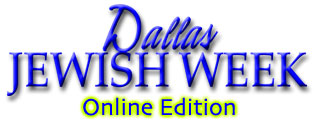|
Dallas Jewish Week Menu
|
 |
Domestic issues
top Reform agenda
by Eric Fingerhut
Washington Jewish Week
WASHINGTON -- They may have had mixed opinions on the war in Iraq, but delegates at the Religious Action Center of Reform Judaism's biannual Consultation on Conscience this week seemed virtually united on one thing -- their opposition to many of President George W. Bush's domestic policies.
The conference at the Omni Shoreham brought together close to 500 Reform Jews from across the country to hear from congressional leaders, Democratic presidential contenders and Bush administration officials, as well as lobby their senators on a wide variety of issues.
While much of the Jewish world's focus is firmly on Iraq, Israel and the Middle East, delegates at the Consultation on Conscience were just as focused, if not more so, on domestic issues like President George W. Bush's proposed $700 billion tax cut.
For example, on Monday afternoon House Chief Deputy Whip Rep. Eric Cantor's statement of support for Israel's security and a $10 billion aid package for the Jewish state was applauded, but with less vigor than House Minority Leader Nancy Pelosi's criticism of Bush's tax cut plan and promise that the Democrats would, unlike the 2002 campaign, be forceful in advocating that position.
Throughout the year the RAC, the Reform movement's social action arm, deals with a wide array of matters both domestic and international. In light of that, Union of American Hebrew Congregations president Rabbi Eric Yoffie emphasized on Sunday evening that while the war in Iraq goes on, Jews should not lose sight of other important issues.
Calling the RAC more needed than ever, Yoffie decried what he saw as a growing chasm between rich and poor -- made deeper, he said, by White House policies.
"This administration is the first in the history of our country to ask the sons and daughters of working men and women to risk their lives in war while asking the wealthy to pay less taxes," Yoffie charged. "Is this the time to provide tax breaks for billionaires, while fighting efforts to raise the minimum wage to anything approaching a living wage?"
Yoffie also urged delegates to remain vigilant on protecting civil liberties.
"My concern is that with the guns of war blazing, we will forget Guantanamo, we will forget that it's wrong to confine people without even telling them the charges against them, we will forget the balance that is required between security and liberty," Yoffie said, to repeated applause.
"If we win the war and lose the Constitution, we will have lost everything."
Opinions on the Iraq war among RAC delegates were diverse. One speaker asked how many were for and against the war, drawing similar applause on each side. Others were more ambivalent, and some delegates interviewed said they thought the Jewish community as a whole was genuinely divided on the issue.
Nobel Peace Prize laureate Elie Wiesel expressed some of that ambivalence about the war on Sunday evening, voicing both support for the Bush campaign against world terrorism and his concern about Iraq's human rights violations.
"When the president of United States declared that he would not stop until terrorism was [defeated], I was for him and still am now," said Wiesel to scattered applause, adding, "Intervention I accept; war is a problem."
This story was published in the DallasJewishWeek
on: Friday, April 4, 2003
Copyright 2004, Dallas Jewish Week